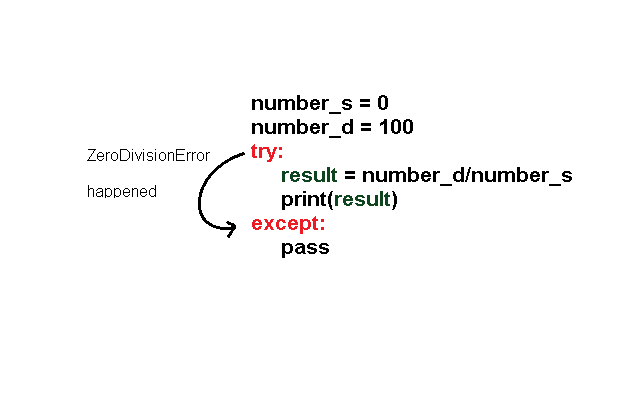The python try block is part of python exception handling mechanism. The try block is similar to an if-then-else block. If an error occurs the try block stops executing. These errors are known errors for which we have a try block. They are called exceptions.
The try block is to notice the error or exception that happened and stop executing.
After that you can have a catch block in python that will handle the error in most appropriate way. Usually the error handling routine is written by the programmers.
Syntax Try Block
There may be code outside the try block and any error in those parts will not be catch-ed. The syntax for try block is given below.
# The try block
number_d = 10
number_s = int(input("Enter a number :"))
try:
result = number_d/number_s
print(result)
except:
passIn the example above, the variables – number_d and number_s are declared outside of the try block, therefore, no error will be caught.
If the value of number_s is 0, there will be a ZeroDivisionError and the program will exit without printing anything because the except keyword does not do anything and let the block pass.
Therefore, output of the above program will be empty. See the figure below.

Instead of pass, you can print a customized error to indicate what error was caught. Note that we already know that a ZeroDivisionError would happen.
Consider the modified program from above.
# The try block
number_d = 10
number_s = int(input("Enter a number :"))
try:
result = number_d/number_s
print(result)
except:
print("Cannot divide by Zero. Try different integer")
The output of the above program is following when number_s is 0.
Enter a number :0 Cannot divide by Zero. Try different integer >>>
In the next article, we will understand more about exception handling, especially, the catch block(except).